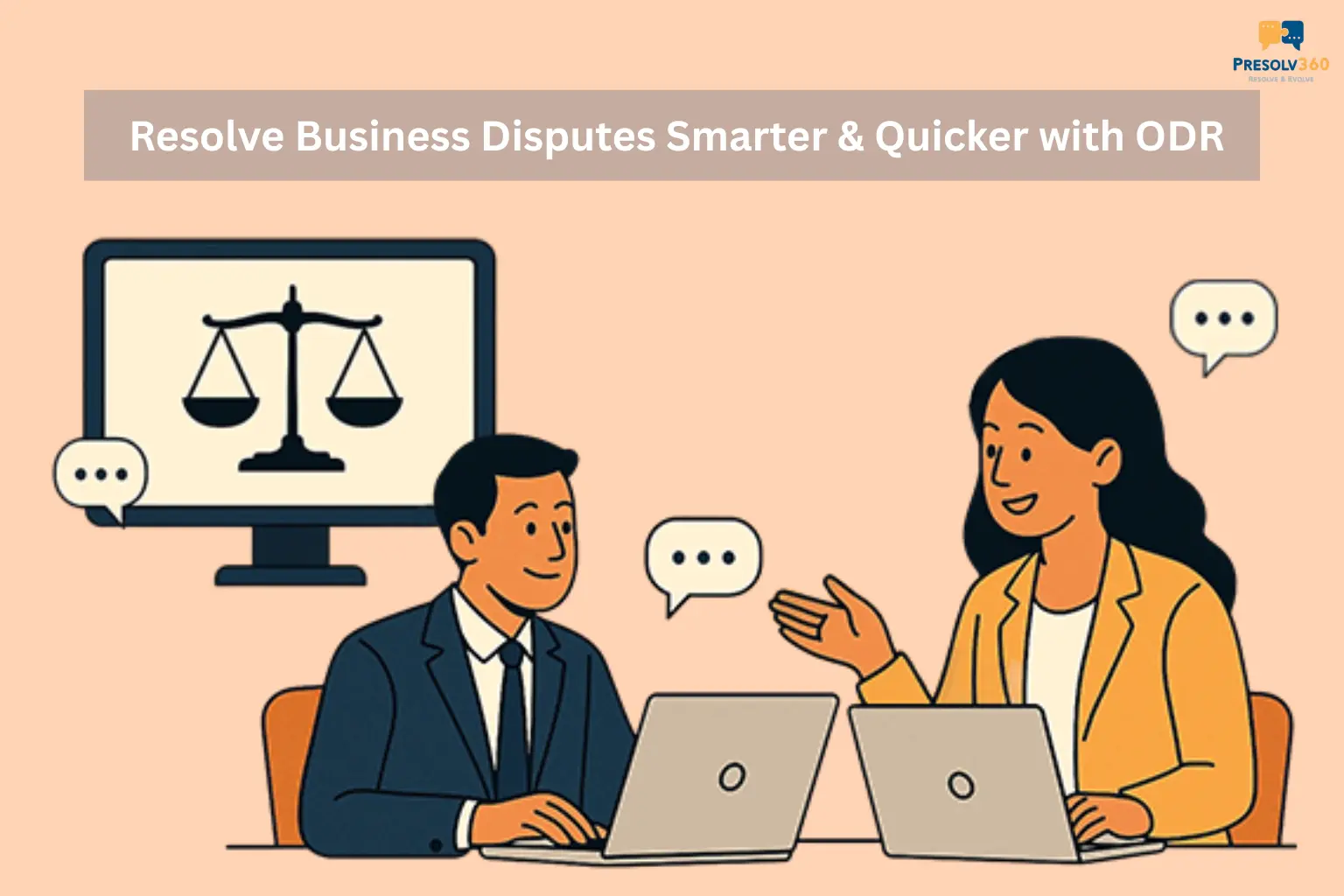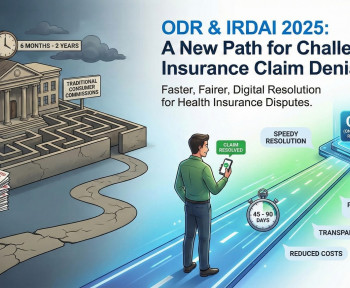Startups and small businesses are the driving force behind India’s growing economy. But as they scale, legal hurdles such as contract disputes, vendor disagreements, and delayed payments can seriously disrupt growth. Traditional legal routes are often slow, expensive, and inaccessible.
That’s where Online Dispute Resolution (ODR) steps in. It’s fast, affordable, and fits right into today’s digital way of doing business, making it a smart choice for startups and SMEs looking for efficient legal solutions.
Understanding Online Dispute Resolution (ODR)
Definition and Scope:
Online Dispute Resolution (ODR) is the use of digital platforms to resolve disputes outside of traditional court systems. It includes tools such as e-arbitration, e-mediation, and e-negotiation.
Benefits of ODR Over Traditional Methods for Startups and Small Businesses:
- No need to travel or attend physical hearings
- Disputes get resolved much faster
- Everything is digitally recorded, so it is transparent
- Cuts down big-time on legal costs
ODR is a scalable legal solution for SMEs in India that need flexibility and speed to resolve disputes while maintaining business continuity.
The Indian Business Landscape and Its Legal Challenges
Key Legal Challenges Faced by Startups and SMEs:
- High Legal Expenses: Hiring legal counsel and attending court hearings drains funds.
- Slow Judicial Processes: Traditional courts are overburdened, leading to long delays.
- Lack of Legal Expertise: Many small businesses don’t have in-house legal teams.
- Limited Resources: Time and staff constraints make it hard to follow up on disputes.
Evolving Regulatory Environment
Government policies and regulatory bodies like NITI Aayog are actively promoting ODR platforms in India. The push towards digital justice is opening new opportunities for startups seeking affordable legal solutions in India.
Key Benefits of ODR for Small Businesses and Startups
1. Cost Reduction
ODR eliminates the need for physical travel, in-person meetings, and lengthy legal procedures, making legal help for small businesses more affordable.
2. Time Efficiency
Cases that would take months or years in court can be resolved in weeks via ODR, perfect for startup dispute management.
3. Accessibility
With just a smartphone or laptop, startups across Tier 2 and Tier 3 cities in India can access top-tier dispute resolution services.
Common Types of Business Disputes Handled via ODR
| Type of Dispute | Description |
|---|---|
| Payment Delays | Resolve issues related to late or missing payments from clients or vendors. |
| Service-Level Disagreements | Resolve conflicts over quality, scope, or timelines of delivered services. |
| Employee Conflicts | Address workplace issues like contract violations or disputes with staff. |
| Intellectual Property (IP) | Settle claims related to copyright, trademark, or patent infringements. |
| Contractual Disputes | General business agreement conflicts, including NDAs, MoUs, and SLAs. |
| E-commerce Disputes | Manage refund, return, and delivery issues between sellers and customers. |
| Banking & Financial Disputes | Resolve loan, credit, or bank charge-related disagreements. |
| Insurance Claims | Dispute denied or delayed claims with insurers in a hassle-free manner. |
| Property & Tenancy Disputes | Handle rental issues or lease agreement conflicts with landlords or tenants. |
Conclusion
In a business environment where time is money and every delay can impact growth, Online Dispute Resolution is more than just an alternative; it’s a competitive advantage. By combining speed, affordability, and accessibility, ODR empowers startups and small businesses in India to resolve disputes without derailing operations.
As government support and digital adoption continue to grow, Online Dispute Resolution is set to become an integral part of India’s business ecosystem, helping entrepreneurs focus on what matters most: innovation, growth, and building lasting customer trust.
Ready to Resolve Your Disputes Faster?
Explore how ODR platforms can offer affordable legal solutions tailored for your small business. Take the first step with Presolv360, choose tech-forward legal help today.




